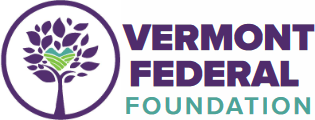What is Identity Theft?
Identity Theft involves personal information such as name, address, date of birth, social security number or a mother's maiden name being stolen in order to assume an individual's identity. This information allows the thief to commit many types of fraud. Example types of fraud are applying for loans, apartment rentals or establishing phone and utility services.
Most identity theft victims never know how their information was obtained. It can be from inadvertently providing sensitive personal information on the internet, stolen mail or a stolen purse or wallet. A method that is common is called Phishing. Phishing is an attempt to acquire sensitive information by posing as a trustworthy entity via electronic communication. Another common method is pretexting. The identity thief poses as a legitimate representative of an entity such as a financial institution, employer, service provider or government agency. They contact you to "verify" data. No trustworthy entity would initiate contact to verify sensitive personal information.
Steps to Prevent Fraud
- Memorize your social security number, all of your passwords and PIN (Personal Identification Numbers). Do not write them on any card or on anything in your wallet or purse.
- Never give personal information over the telephone unless you initiated the call. Be particularly wary of giving out your social security number.
- Never provide personal information on the Internet in response to an electronic communication.
- Shred pre-approved credit applications, credit card receipts, bills, expired credit cards, account statements and all confidential documents before recycling.
- Promptly remove mail from your mailbox.
- Sign all new credit cards upon receipt.
- Match all credit card receipts against your monthly credit card bills.
- Report all lost or stolen cards immediately.
- Review your credit report from the three major credit bureaus once a year.
- Be sure you are aware of all accounts listed
- Look for copies of your credit report sent to unknown sources
- Be sure there are no inquiries you didn't apply for
- Check for addresses where you have never lived
- Typos in your Social Security Number
What to do if You're a Victim
- Close or freeze the accounts that have been affected.
- Contact the fraud departments of the three major credit bureaus to place a fraud alert on your credit file.
- EXPERIAN: (888) 397-3742
- EQUIFAX: (888) 766-0008
- TRANS UNION: (800) 680-7289
- File a police report (send copies to your creditors and others that may require proof of the crime).
- File your complaint with the Federal Trade Commission.
View our Privacy Policy
Vermont Federal Credit Union is a $900 million-plus full-service, not-for-profit, cooperative financial institution that has served Vermonters for more than 70 years, with eight locations currently serving over 50,000 members. Members are part of a cooperative, meaning they share ownership in the Credit Union and elect a volunteer board of directors. Vermont Federal Credit Union provides membership to anyone who lives, works, worships, or attends school in all of Vermont. Vermont Federal Credit Union is committed to supporting its communities and helping Vermonters prosper, no matter where they may be on life’s journey. Learn more about Vermont Federal Credit Union.








